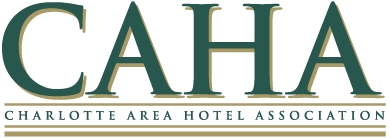It seems likely that organizers of the upcoming Republican National Convention will be disappointed with the response from North Carolina's top health official on "safety protocols" and plans submitted last week for the four-day event slated to be held here in August. The Charlotte Observer reports Dr. Mandy Cohen, secretary of the N.C. Department of Health and Human Services, signaled in comments to reporters yesterday that she will reject the RNC's request to fill Spectrum Center with 19,000 attendees, sans masks and social distancing.
Cohen had asked the party to plan for multiple scenarios in case the evolving Covid-19 situation doesn't allow for a crowded, indoor event. Her written response, expected soon, would be the latest in a series of back-and-forth communications between local officials and those in charge of the convention that started with President Donald Trump's threat on Memorial Day to move the RNC if he can't have full capacity. Over the weekend, the top executives behind the event — Ronna McDaniel, chair of the Republican National Committee, and Marcia Lee Kelly, CEO of the 2020 Republican National Convention — said that, if the state doesn't provide assurances by tomorrow, organizers will “immediately need to begin making modifications as to how the convention will proceed.”
However, with Trump ramping up his law-and-order rhetoric yesterday with a threat to deploy the military in U.S. cities amid widespread unrest over racial injustice and police brutality, there's more than the coronavirus pandemic to consider. In recent days, the president has tweeted about shooting looters and using "vicious dogs" against protesters, evoking imagery of violent conflicts during the Civil Rights era.
“Given the complexity and potential for violence, social distancing will be the least of our issues,” Chris Swecker, a former FBI official, told the Observer for a separate report. He believes the Charlotte-Mecklenburg Police Department is up to the challenge, considering the agency's experience with the Democratic National Convention in 2012 and the NBA All-Star Game in 2019, among other major events.
Rev. Rodney Sadler, who leads the Center for Social Justice and Reconciliation at Charlotte’s Union Presbyterian Seminary, disagrees with that sentiment. He has been on the streets for some of the protests and offered a different view.
“I’ve seen people who have been inciting violence and who were incredibly aggressive against the police. I don’t recognize these people and I’ve been around the activist community for some time,” Sadler told the daily newspaper: “The (Charlotte) police department is not ready to handle the kind of disruption we will see when all the activists that are causing trouble around the country — the violent people — decide to come to Charlotte (to protest the GOP convention).”
The potential for violence as well as racist remarks by Trump have been among concerns for leaders in Charlotte since the city agreed in 2018 to host the convention.
Meanwhile, marching continued for a fourth day in the Queen City as hundreds of people gathered at Freedom Park before taking to the streets of Dilworth and Myers Park — among the most affluent residential neighborhoods in town. Two Carolina Panthers players joined in the demonstration, as did some of the residents along the route. Later, a smaller crowd returned to uptown, where the Observer reports one person was arrested.
Republican leaders in the N.C. General Assembly have criticized Gov. Roy Cooper's response to the unrest, calling for the deployment of National Guard troops and curfews to quell rioting.
"Let me be clear about one thing: People are more important than property. Black Lives do Matter," Cooper, a Democrat, said Sunday. He has authorized the National Guard, though troops have not been deployed, and urged protesters to remain peaceful.
